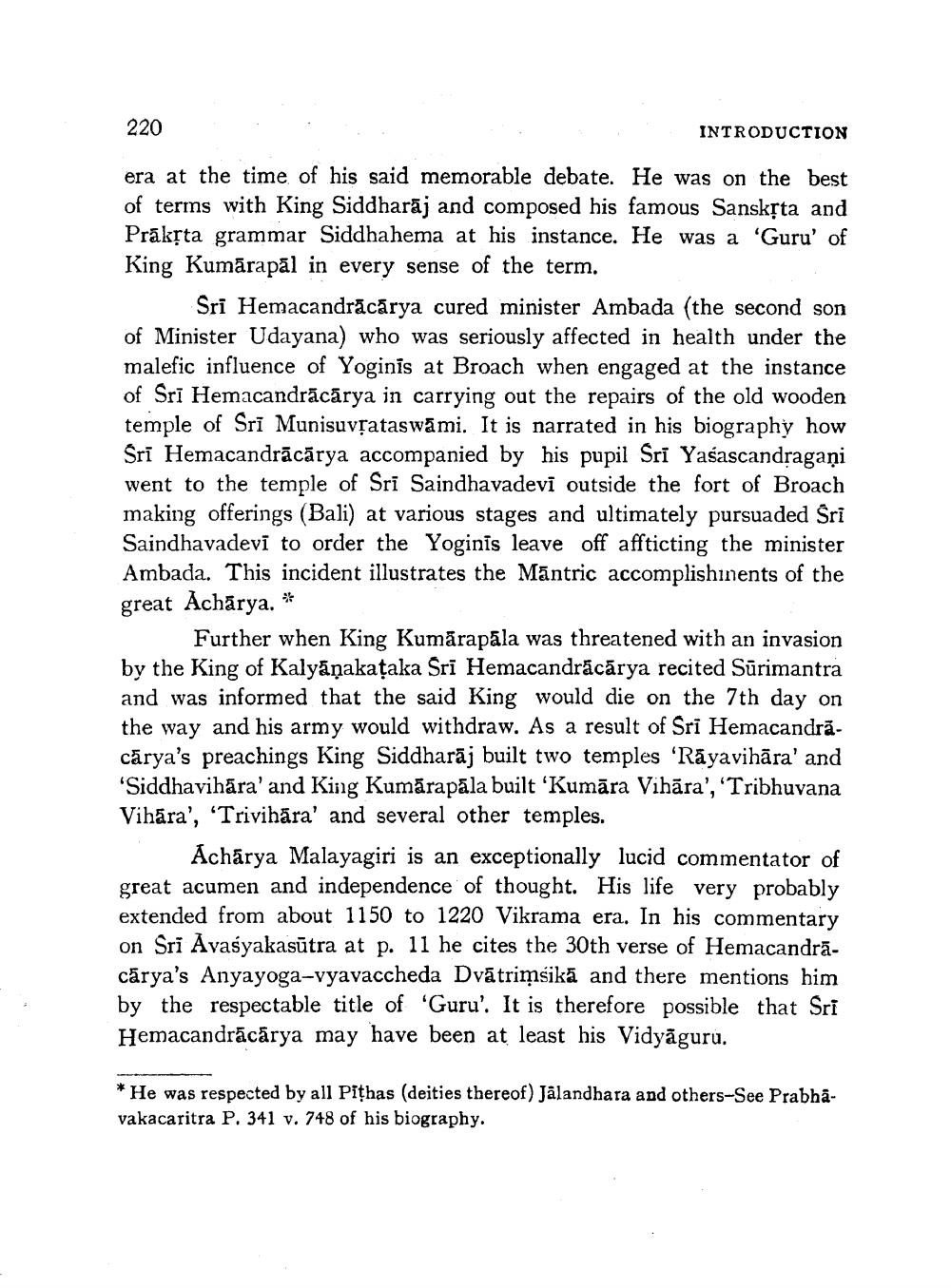________________
220
INTRODUCTION
era at the time of his said memorable debate. He was on the best of terms with King Siddharaj and composed his famous Sanskṛta and Prākṛta grammar Siddhahema at his instance. He was a 'Guru' of King Kumārapal in every sense of the term.
Sri Hemacandrācārya cured minister Ambada (the second son of Minister Udayana) who was seriously affected in health under the malefic influence of Yoginis at Broach when engaged at the instance of Sri Hemacandrācārya in carrying out the repairs of the old wooden temple of Sri Munisuvṛataswāmi. It is narrated in his biography how Śrī Hemacandrācārya accompanied by his pupil Sri Yasascandragani went to the temple of Sri Saindhavadevī outside the fort of Broach making offerings (Bali) at various stages and ultimately pursuaded Sri Saindhavadevī to order the Yoginis leave off affticting the minister Ambada. This incident illustrates the Mantric accomplishments of the great Acharya. *
Further when King Kumārapāla was threatened with an invasion by the King of Kalyāṇakaṭaka Sri Hemacandrācārya recited Sūrimantra and was informed that the said King would die on the 7th day on the way and his army would withdraw. As a result of Sri Hemacandracarya's preachings King Siddharāj built two temples 'Rayavihara' and 'Siddhavihara' and King Kumārapāla built 'Kumāra Vihāra', 'Tribhuvana Vihara', 'Trivihara' and several other temples.
Acharya Malayagiri is an exceptionally lucid commentator of great acumen and independence of thought. His life very probably extended from about 1150 to 1220 Vikrama era. In his commentary on Sri Avasyakasūtra at p. 11 he cites the 30th verse of Hemacandracarya's Anyayoga-vyavaccheda Dvātrimsikā and there mentions him by the respectable title of 'Guru'. It is therefore possible that Sri Hemacandracārya may have been at least his Vidyaguru.
*He was respected by all Pithas (deities thereof) Jalandhara and others-See Prabhavakacaritra P. 341 v. 748 of his biography.




